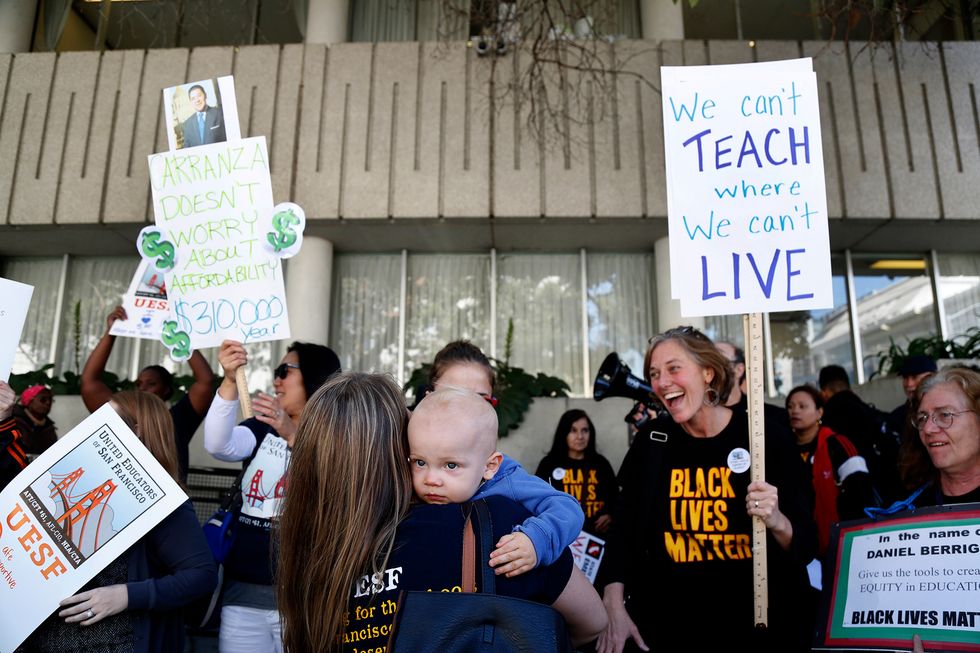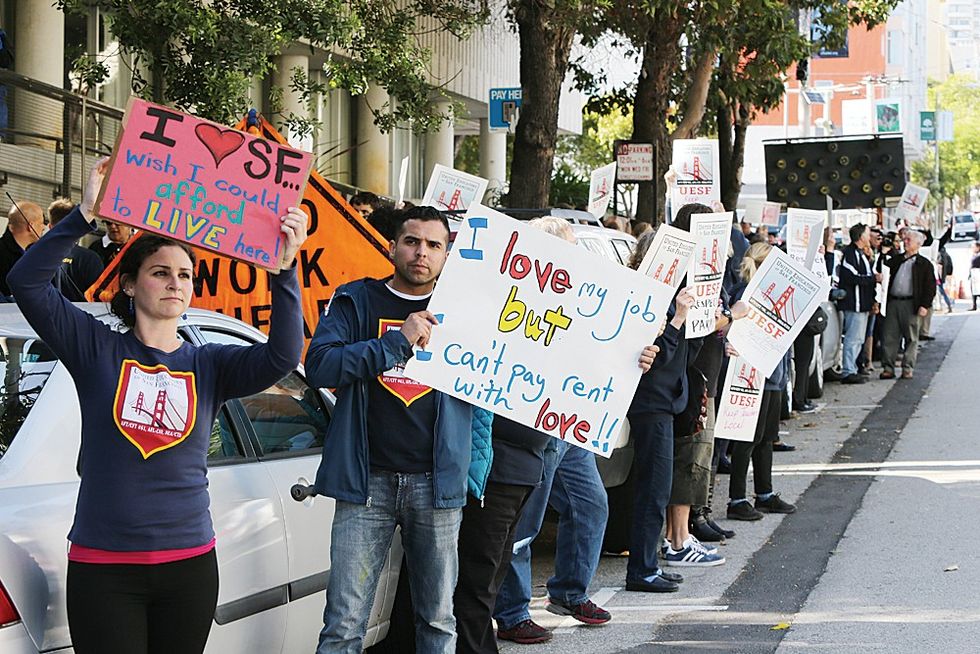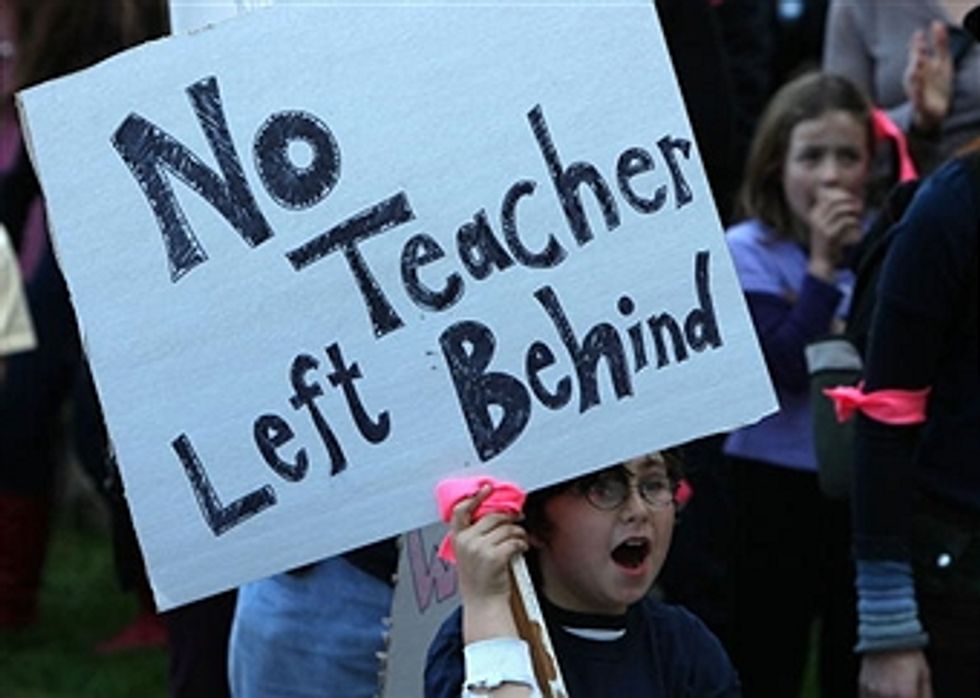As the housing crisis in San Francisco escalates, residents belonging to the lower-middle class have been increasingly affected. Some of the most significant communities burdened with the pains of the ever-rising cost of living are those in education, specifically teachers. Devoting their lives to the scholarship and developmental growth of San Francisco’s youth, teachers are not receiving the support they deserve in regards to affordable housing. Instead, many are fearfully living “paycheck to paycheck” while trying to support their families.
According to a study reported by the San Francisco Chronicle and produced by budgetary analyst Harvey Rose, “a teacher with a bachelor’s degree and more than 25 years of experience makes $6,000 too little to afford a studio apartment” in San Francisco. Even if some teachers could find an apartment within budget, the majority of them have children and families to support and need substantially more space than what is provided in a tiny studio apartment. Consequently, teachers have been systematically forced to migrate out of the city. This results in the rise of tedious commutes, which vary in time and range anywhere from 1-5 hours a day. Instead of being able to focus on creating lesson plans, grading papers, and ensuring their students’ successes, teachers in the Bay Area are plagued by endless hours of driving on a daily basis. This not only put’s a strain on these teachers' work performances, but can also unfairly worsen their overall qualities of life.
For those "lucky" enough to remain in the city, the daunting fear of eviction is an ever-looming presence. Though rent control exists in San Francisco, many landlords have found loopholes and various ways to raise rent-prices. One example is through the Ellis-Act, which states that landlords have the right to evict all tenants from the premises at once if they plan to “change the function of the building.” According to the San Francisco Tenants Union, “most Ellis evictions are used to convert rental units to condominiums, using loopholes in the condo law.” Sadly, this is just one of the many ways residents who cannot afford to increase their rent are being pushed into lower-income areas or out of the city. Many teachers who have resided in the city for years endure the constant fear of being essentially thrown out of their homes with only five to thirty days’ notice.
This crisis does not discriminate between teachers of differing ages, degrees of experience, or education levels. As the cost of living rises, all educators teaching below the collegiate level continue to suffer. These people have paid their dues to society; they do not deserve to be living with several roommates, in studio apartments with their children, or commuting for 3-4 hours a day. Most educators living in the Bay Area are also forced to take side jobs just to make ends meet. If this process continues, teachers could eventually give up working in San Francisco altogether. This loss or possible outflow of teachers will not only cause the quality of education to suffer in San Francisco’s communities, but will also negatively impact students who depend on consistency.
Though there has been little to no progress, legislators of San Francisco and the school district have supposedly been addressing this issue for over a decade. The San Francisco Chronicle reported that Olsen Lee, the Director of the Mayor's Office for Housing, stated that a site for this kind of residence would be chosen this summer. However, real housing would most likely not be available before 2022. Unfortunately, there have been no substantial actions taken, and the issue has only been excessively mulled over. The last made "plans" of any real forms of housing were set before the turn of the twenty-first century; however none of these projects ever came to materialization. The San Francisco Chronicle also reported a telling quote by Mark Sanchez, a school board member who lobbied for affordable housing while serving in 2004 and recently reclaimed a seat in 2016. On the pace of progress regarding this issue, Sanchez said “I’d say it’s glacial, but I think with global warming, it’s slower than glacial.” City officials need to make good on the promises they have been discussing for years by providing teachers with subsidized housing.
Simply put, if San Francisco is a city that genuinely values education, then educators should be receiving a much higher level of support from the school district, the city council, and even state legislators. Whether this aid comes in the form of income raises or more suitable living arrangements, the current systems cannot remain as they are. In addition, those involved in the city's legislation should be attempting to make educational professions more appealing to younger generations. From personal experience, I can confirm that many millennials may be hasty to write off teaching as a possible profession simple due to the housing constraints that hinder it's practicality. If growth and success in the field of education is of any concern to the legislators and the people of San Francisco, we are in need of significant reform. Hopefully, if considerable changes are made in San Francisco, this progress will spread to other high–income areas across the U.S where educators are undergoing the same obstacles. Affordable housing for teachers needs to become a priority. The longer this issue is overlooked, the more detrimental the effects will be in the long term.
a version of this originally appeared in the San Francisco Foghorn






















